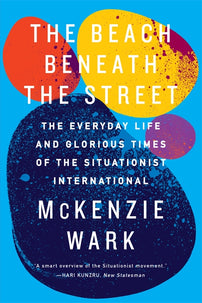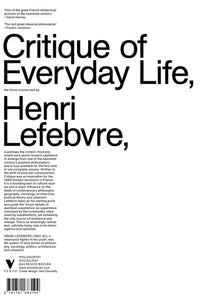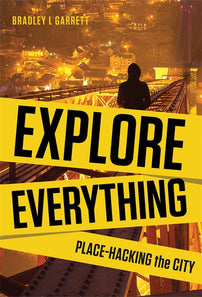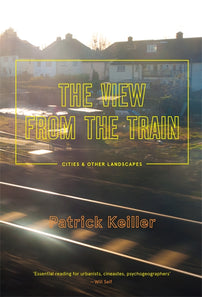Walking is a Show of Dignity: A conversation with Frédéric Gros
In this interview with Nicolas Truong, philosopher and writer Frédéric Gros analyses how walking can take on a political meaning. Whether individual or collective, the march is the mode of popular expression par excellence.

First published in Le Monde. Translated by David Broder.
Is the name of president Emmanuel Macron’s En marche! movement simply designed to mobilise voters (of a type with Nicolas Dupont-Aignan’s Debout la France ["France, arise"])? Or is there some other meaning in this recourse to both military and pedestrian vocabulary?
Obviously in "En Marche!" as in "Debout la France" there is this appeal for mobilisation that you mention. The idea is that a striking slogan can get across a certain dynamism, excite people’s energies, and compel those forces that have bowed down or dozed off to wake up again.
In a different context Rimbaud had another much more poetic formula, En avant, route! ["Forward march, let’s go!"] to express the enthusiasm of setting off, the drunken leap into the unknown, heading off the beaten track.
Obviously, we should suppose that there is rather less a sense of freshness or naïve determination in Emmanuel Macron’s "En Marche!." The exclamation mark is, right away, a conquering one: it means marching over, marching against, like when "La Marseillaise" repeats "Marchons, marchons" ["let’s march, let’s march"]. This is a march toward and for power.
At the same time, "En marche!" suggests less urgency than "Debout la France," which evokes something more of a sudden start. From its pedestrian metaphor, "En marche!" takes the element of calm resolution: you get "on the move" after a reparatory pause, getting to the bottom of a thought, and above all when the moment has come — the "right" moment, the moment when it is opportune.
With its cult of personality and the playing of the "Ode to Joy," was Mr. Macron’s walk from the Louvre [on the night of his election success] not just an insipid and egotistical remake of François Mitterrand’s one at the Panthéon? Or was Macron here putting the republican monarchy and the vertical organisation of power back on display again?
Emmanuel Macron did not copy from this past memory completely. But he clearly chose to stage his walk in a way that made reference to François Mitterrand’s, through the common musical accompaniment at least.
Having said that, Emmanuel Macron’s walk was rather more based on the contrast between an isolated but determined figure walking at a sure and steady pace, and his sumptuous surroundings. This backdrop enshrouded Macron without overwhelming him, and even served to draw him into sharper relief.
Unlike Mitterrand’s walk at the Panthéon, I think that this was less a case of showing a pious allegiance to the prestigious dead, or a display of reflective remembrance. Rather, it was a way of portraying a man proudly and unfailingly walking to meet his destiny, as he right away exposed himself to the judgement of History.
Why is this reference to walking, the march, such a constant in politics, from Mao to Gandhi via Martin Luther King?
Walking is, certainly, the mode of popular expression par excellence. Doubtless we have forgotten this a little, given the current explosion in the lucrative market for spectacular hikes and other treks, but whoever travels "by foot" is first of all showing their poverty. The fact that today we are prepared to pay a lot of money to give ourselves the luxury of walking on our own two feet itself symbolises a lot. That said, organising a collective walk — and that is what all demonstrations are — is, I believe, first of all a display of the occupation of public space by its legitimate and natural first owner: the people. With his Salt March, Gandhi showed another dimension, another style. Crossing through villages and silently calling for peaceful disobedience, he covered almost 400 kilometres on foot accompanied by followers of his… as well as journalists!
Long, slow, resolute walking across days and months is a display of a specific form of courage: a certain endurance, which is not a matter of explosive zeal, but a way of keeping going in the long haul. It is also a display of dignity: whoever marches remains upstanding as they advance. The march symbolises a humility that is never humiliating.
Other great twentieth-century political marches were organised more like tactical plays that made up part of a general strategy: Mao’s "Long March," a diversion that transformed a retreat into a victorious declaration of intent; or the "March on Rome" by Mussolini’s Italian fasci, which represented an impressive means of pressure on a divided, enfeebled, numbed government.
We ought to understand the irreducible styles of these great political marches, but also, most importantly, the fact that they are coloured by an insurmountable ambiguity. For they can either emphasise their martial, conquering, aggressive aspect or, on the contrary, insist on an intransigent pacifism.
From the "Marche des Beurs" to the "March for Science," via individual initiatives like that by [2017 presidential candidate] Jean Lassalle, which marches maintain some particular importance for today’s France?
It is true that France does remember a certain number of spectacular marches from its history. The 1983 "Marche des Beurs" ("for equality and against racism") built itself as a vibrant appeal, a progressive coming-to-consciousness, an interpellation very closely concerning the people it met along the way. Indeed, the march was a display of proximity: those who marched were at the same level as their neighbours.
The "March for Science" organised for Earth Day (22 April) bears witness to something further: our earthly condition, our bodily finitude, our belonging to the living world. It is an illustration of the building of a new, unprecedented, manifest political community, one irreducible to the classic national communities: namely, the community of the Earth’s inhabitants.
At a more personalised level, a certain number of "individual" marches have punctuated our present time: for instance, Jean Lassalle’s walk. This was precisely a matter of meeting the French people and getting as close to their preoccupations as possible, without any superficiality, taking the time to see them and to understand them.
But we can also think of Jérôme Kerviel’s march, which staged an inverted pilgrimage — Rome was his starting point — and set up the dimension of spiritual transformation and asceticism as a counterpoint to his existence as a trader. This was walking as a display that he had broken with his "past life."
Is there something ethical, or even political, about walking on the paths marked out by the GR français ["Grandes Randonnées": long, mapped hiking trails] or off the beaten track? Is this not a way of experiencing one’s own freedom, or a form of resisting the world of speed and profitability?
The practice of going on a Grande Randonnée or a walk without end does not in itself constitute an act of political resistance. That said, it is traversed by ethical dimensions which can be at the heart of political action in the most authentic sense.
Obviously, I am here primarily thinking — your question suggested it — of resistance to the contemporary values of speed, and resistance to the imperative constantly to be connected. To walk is to choose slowness, to promise oneself simple pleasures that cost nothing (the beauty of the landscape, the headiness of mountain passes, the sweetness of forest trails) or even a tranquil tiredness, as opposed to the irritations of the city.
In its immense monotony of repeated steps, to walk is to give ourselves the opportunity to rediscover a privileged mode of presence to the self, to others, to the sensible world, and finally to tear ourselves away from being absorbed by screens and connections.
None of that is political in the proper sense, if by "political" we simply mean the management/transformation of public affairs. But — as the example of pilgrimages once again proves — walking does carry forth a hope, a will to internal change, to conversion within ourselves. And it is starting from a transformation of the self that politics sets about transforming the world.
In autumn Albin Michel are publishing an essay of yours entitled Désobéir. What link do you establish between disobedience and walking?
At a factual level, it is worth noting that the American philosopher Henry David Thoreau was the author of both Walking (1862), the first essay which explicitly took walking as its object of reflection, and the first great text devoted to civil disobedience — even though Thoreau never himself used this expression, as the title was given to the book after his death. Reading this work was a decisive revelatory moment for Tolstoy, Gandhi and Martin Luther King.
As we have already said, to walk is to strongly resist the wretched aspects of modernity (the pathological obsession with performance, the cult of speed, parallel existences in digital universes, avoiding presence). But it is also to provide oneself with adventure, breaking with the inertias of the present.
To conclude, I will return to Rimbaud (who Verlaine called "the man with shoes of wind," so staggered was he by the poet’s capacity for walking). In one of his Illuminations, entitled "Democracy," Rimbaud wrote: "Conscripts of good will, ours will be a ferocious philosophy; ignorant as to science, rabid for comfort; and let the rest of the world croak. This is the real advance. Forward march, let's go!"
[book-strip index="1" style="display"]




